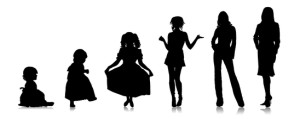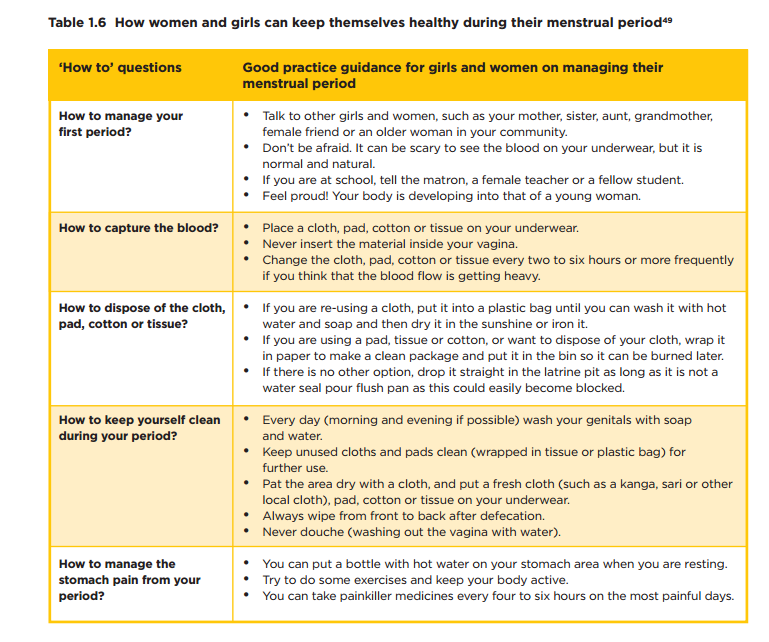Step Into Your Power
Let me show you how to find the power that I know is within you. Sign up for my mailing list and I will send you a free copy of my Five Daily Practices of Self Appreciation.
My Mother Does Not Care About Me

A young woman has reached her menses, and feels that her mother does not care about this milestone in her life. She is asking where to turn.
Dear Doctor Life Advice,
I am nineteen years old and I just got my very first period. I told my mother, but she does not seem to care. I feel ashamed of being her daughter. I also need a woman or a girl to talk to.
Signed: Growing Up Alone
Dear Growing Up Alone
I am so sorry that you have to deal with this alone. I agree that it is very sad that your mother does not seem to care about your recent development. Let me congratulate you on getting your first period. This is an occasion for every young woman to celebrate as it is a sign of your body developing into the next stage of your life, and also a sign that you are healthy. Here is some advice I have for you and resources to look at.
Make Sure You are Getting Proper Nutrition
Once your body starts its menstruation cycles, your nutritional needs will change. It is very important for you to make sure you are getting all of the nutrition your body needs to remain healthy. The Better Health Channel has a very good page on what you should eat and what vitamins to take to maintain a healthy body. Also make sure you are drinking at least eight glasses of water every day.
Maintaining Good Hygiene
Periods can be quite messy, and it’s important to learn to have good hygiene throughout your cycle. There are a lot of pages that address these issues and I’m pasting in some of the pages for you to look at to get more information:
- Women’s Health has an article that describes menstruation in detail, talks about what you should expect, and more importantly, what issues require a doctor’s attention. It is very detailed and a bit hard to read, but it is worth a look at this link.
- Health.India.Com has a lot of good articles related to health. Click here to read up on things you need to know about hygiene during your period.
- There is a good article in Huffington Post that talks about some common conceptions and misconceptions about getting your periods. It may be more useful when you have had a few periods, and have developed a pattern of your menstrual cycles. I’m putting in the link here for you to take a look.
- An organization called Water Aid has recently published an online resource regarding menstrual hygiene in the third world. I am pasting in a copy of their most important table below, or you can click here if you want to read the whole document.

Talk to a Doctor
If you already have a doctor, talk to your doctor, or look for a doctor that specializes in women. The age of nineteen is a bit late for getting your first period, so it is specially important for you to talk to a physician. This may be a family doctor, or an obstetrician/gynecologist (OB/GYN) who has been trained to work with women specifically. If you are sexually active, you will need a “well-woman” exam every year, so you should establish a relationship with a doctor you trust. Many women prefer to see a female doctor for their well-woman exam. In your case, it may be important to have a female doctor since she can talk to you about the subjects that your mother is not talking to you about. If you feel comfortable with a male doctor, they are just as well trained as female doctors. Doctors’ offices provide another good place to look for brochures for other resources as well.
Find Other People to Talk to
I agree that you need someone to talk to about your unique situation and get help and information. Here are some suggestions:
- Start with your mom. Approach her again and let her know that you need to talk with her. Tell her that it is important to you to talk to a woman and that you are turning to her for help. It may be that she has her own discomforts with you getting your period, or that her mother never talked to her about women’s health, and that she is embarrassed and does not trust herself to be helpful to you. If that’s the case, maybe she will open up to you, and you two can look for a more informed woman to talk to together.
- Look at your extended family. Do you have grandmothers, sisters, aunts, cousins, or other relatives you can contact for help? If so, start contacting them. The more people that you have to support you, the better.
- If you are in school, talk to the school counselor or one of your teachers. I am going to guess that you prefer to talk to a female counselor or teacher. That is fine. I am sure your school has some female teachers if not any counselors. If you are not in school, think about the last school you were in, and go visit them. Schools also may have brochures for other resources you can turn to.
- Look in your area for local support groups for young women. Joining a support group is a great way to meet other young women and make friends that can help you throughout your life.
- If you belong to any sort of a religious organization, turn to them for resources that can help and provide you with guidance.
In Case You Have Problems
Although reaching puberty is a cause for celebration, getting your period is not always without problems. Problems can include PMS (Premenstrual Syndrome), headaches, food cravings, and cramping. Here are some websites that have information that can be helpful to you:
- KidsHealth.Org has some information on the most common problems with periods, and what to do about them. Click here to read the article. It is a bit sad, because the website is talking to parents who are caring for their kids, and I’m sorry that your mother is not reading it. Please read it only if you are having problems, otherwise, it can be a little overwhelming to look at all the potential issues that can come up.
- There are many emotional reactions to getting your first period. It is hard enough to deal with these emotions even when your mother is there for you and supporting you. In your case, your mother may not be able to give you the support you need even if you approach her directly and tell her you need her. If you feel alone despite reaching out to others, then find a good therapist and see him or her. I am a big believer in therapy as I believe it helps us talk through our issues with someone that is not biased. You may be able to find a therapist that can help you figure out what is missing in your relationship with your mother, and help you with ways to improve that relationship, or ways to form new relationships with others that will be helpful to you.
Conclusions,
Getting your first period is cause for celebration and a major milestone in your life. You should not be going through this part of your life alone and without support. Reach out to your mother again, see a doctor and maybe even a therapist, read up on good diet and hygiene, and talk to anyone that can potentially be helpful to you. Again, I congratulate you on reaching a new stage of your life, and wish you the best.
